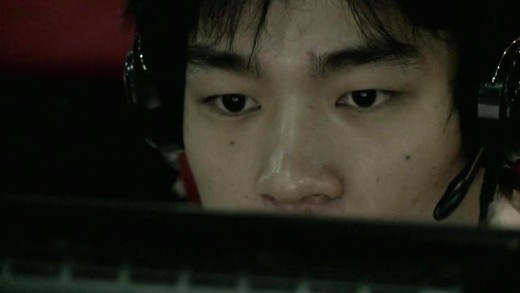The Facebook Dilemma aims to open an in-depth investigation into the impact Facebook has had on privacy and democracy in the United States and throughout the world, by revealing how the decisions made by the company as it sought increased wealth and new users, transformed it into a vast surveillance machine, a media company, and a 'hidden hand' in elections and political discourse. Drawing on original interviews from those inside the company, this two part series catalogues some of the ignored warning signs, both inside and outside the company, of Facebook's negative impact, growing from Zuckerberg's dorm-room project and into a powerful global empire.
This short video explores how the online world has overwhelmingly become the popular outlet for public rage by briefly illustrating some of the many stories of everyday people which have suddenly become public enemy number one under the most misunderstood of circumstances and trivial narratives. With the web acting like a giant echo-chamber, amplifying false stories and feeding on the pent-up aggression of the audience watching the spectacle, The Outrage Machine shows how these systems froth the mob mentality into a hideous mess, as a good example of where the spectacle goes and how its intensity has to keep ratcheting up in order maintain the audience attention, in a culture of dwindling attention spans, distraction and triviality.
Once relegated to the margins of society, pornography is now the most pervasive and visible aspect of popular culture, assuming an unprecedented role in media as its content becomes more harsh and extreme, racist and abusive. This eye-opening and disturbing film moves beyond frivolous "liberal versus conservative" debate and tackles the real issues surrounding pornography by placing the voices of performers themselves, producers and critics directly alongside the observations of women and men as they candidly discuss the role porn has played in shaping their sexual imaginations and relationships. The Price Of Pleasure reveals a nuanced portrait of how pleasure and pain, commerce and power, freedom and responsibility have become extremely twisted by popular culture, usurping the most intimate area of our lives.
The Social Dilemma brings together former product directors and designers of Facebook, Google, Instagram, Pintrest, Twitter, and so on, to reflect on their creations and face questions about the age of addiction, information manipulation, and algorithmic social control they've ushered in. The creators speak openly about how they themselves took part in this co-optation of society, either naively or with malignant indifference, by designing websites in such a way to influence and manipulate billions of people for corporate interests by using deep psychological and addictive triggers in the human mind. Detailed explanations about how this can play out in the real world are illustrated through dramatisations, which are also expanded upon by experts in psychology, technology, and social studies. The result is a sobering call for emergency damage control, to undo the massive harm that technology companies have unleashed on society unrestrained for the past several decades, at a time of rapid social unravelling.
The Truth About Killer Robots considers several cases where humans have been killed from interactions with automatic machines. From the Volkswagen factory in Germany, to workers in Chinese sweatshops assembling smartphones, to a bomb-carrying police droid in the United States, the film exposes this culture's fundamental fascination with machines, while illustrating the insatiable expansion of capitalism via automation and machine redundancy. Also explored are 'self-driving' cars; surveillance devices; humanless-stores, automated pizzas, robotic supermarkets and hotels; so-called 'sex' robots; and vast data gathering machines such as Facebook, which have subverted notions of real human interaction and intimacy. Told through the machine lens of engineers themselves, journalists and philosophers, the film attempts to go beyond the deaths of humans to reveal some of the ways that robots affect this culture in general. Not just by the displacement of labour, but fundamentally as humans of this culture adjust their lives to the rhythms of more and more machines, basic human faculties atrophy, and true connection to the real world and each other becomes more remote and strenuous, at precisely the same time where we need each other the most.
Web Junkie travels to China, the first country in the world where Internet addiction has been classified as a clinical disorder. The film focuses on the methods used to treat young people, which reveal a surreal mix of prison, hospital, and military operations, with a dose of group therapy thrown in for good measure. We also see the cultural and emotional effects of Internet addiction in China's society of hyper-competitiveness, which speaks to the dominant culture worldwide. Web Junkie exposes the virtual world in a country—and indeed world—of disparity, where health officials have no idea how to cope with a younger generation that finds World of Warcraft more exciting and supposedly more "real" than their own lives.
Every day, billions of people are unwittingly taking part in what is the largest most comprehensive psychological experiment ever conducted. The old marketing and advertising world using billboards, advertisements and TV commercials to persuade us, has been comprehensively augmented by an entirely new field of "user experience architects" and "online persuasion agents." These forces are given tremendous power from the proliferation of digital technologies. So how do these powerful forces ensure that we fill our online shopping carts to the brim, or stay on websites as long as possible? Or vote for a particular candidate? What Makes You Click examines how these prolific entities collectively and individually use, shape, and manipulate our experiences via an online world, not just when it comes to buying things, but also with regards to our free time and political perspectives. The manipulation has become so good that these powerful controllers, former Google employees among them, are themselves arguing for the introduction of an ethical code. What does it mean when the grand conductors of these huge experiments themselves are asking for their power, influence and possibilities to be restricted?
YouTube, owned by Google, has become one of the most powerful online media platforms in the world, fast to be replacing the viewership of television with over 30 billion hours watched per month in 2017. Young people flock to the platform in the hopes of fame and fortune, which comes for a select few, but not all, hence the allure to 'make it.' YouTube celebrities are now mainstream celebrities. The result is troves competing to live their lives as monetised open-wounds for the corporate platform, constantly pleading for subscribers, attention and engagement, all at the hands of Google, its secret algorithms, and the screen culture of spectacle, pornography, and targeted advertising. On both sides of the screen, the treadmill is all about keeping the ad dollars constantly rolling. YouTube, YouTubers and You offers a glimpse into this new media and advertising world, pondering how this culture may continue to undermine our future media and informational landscape. What sort of people and world is this culture creating and perpetuating?







